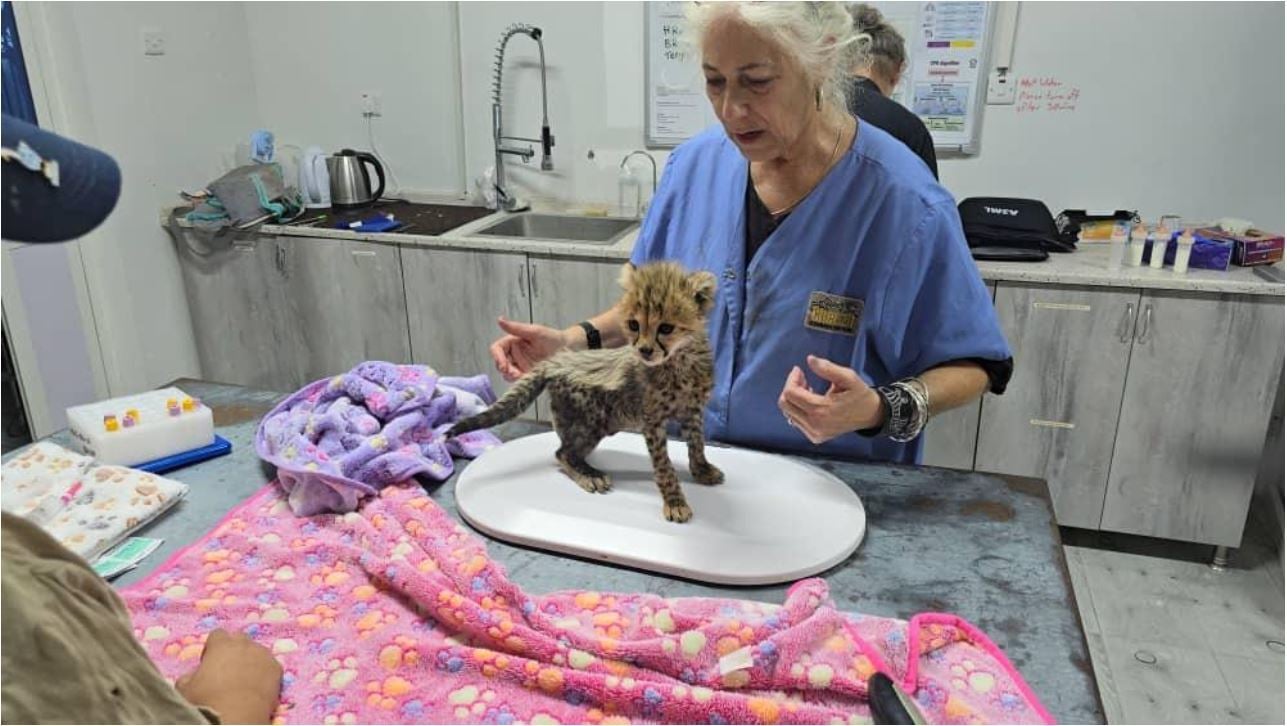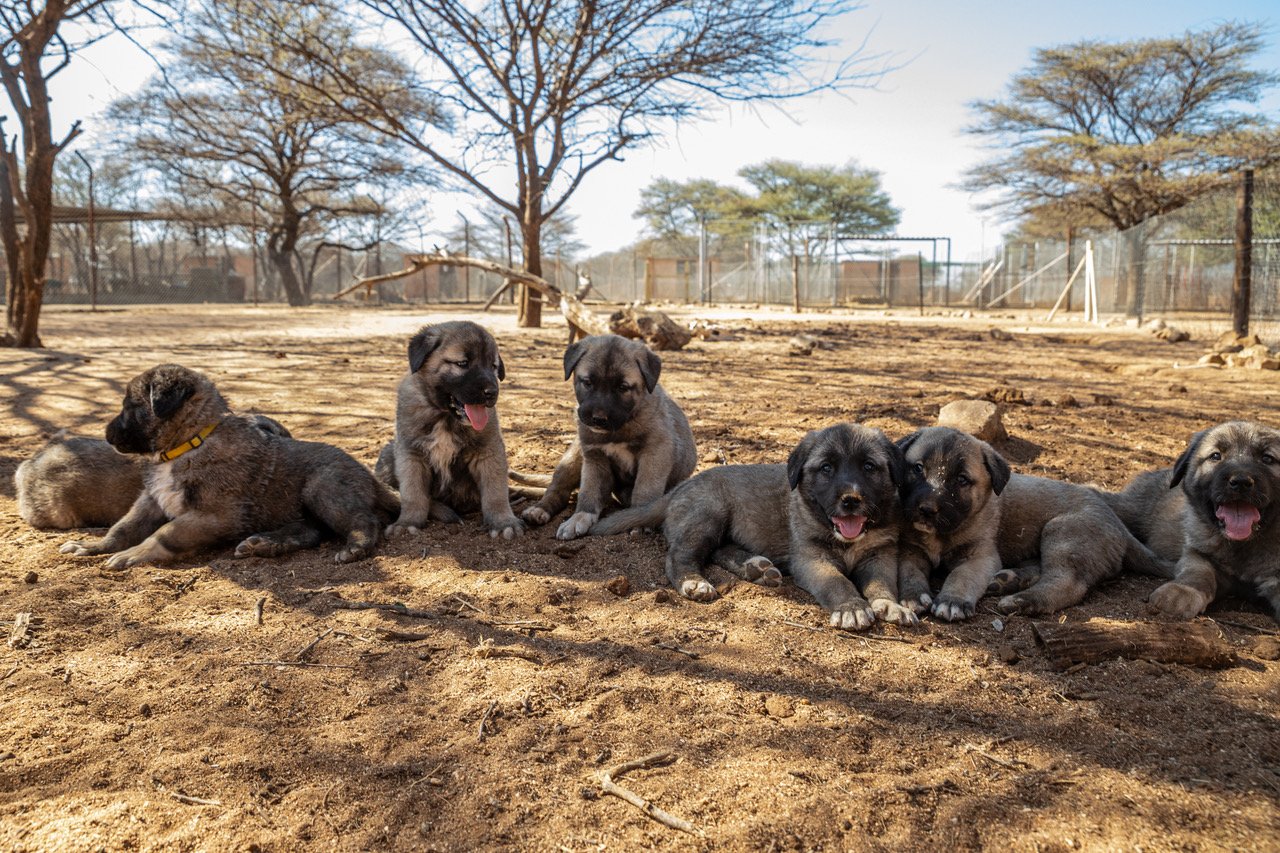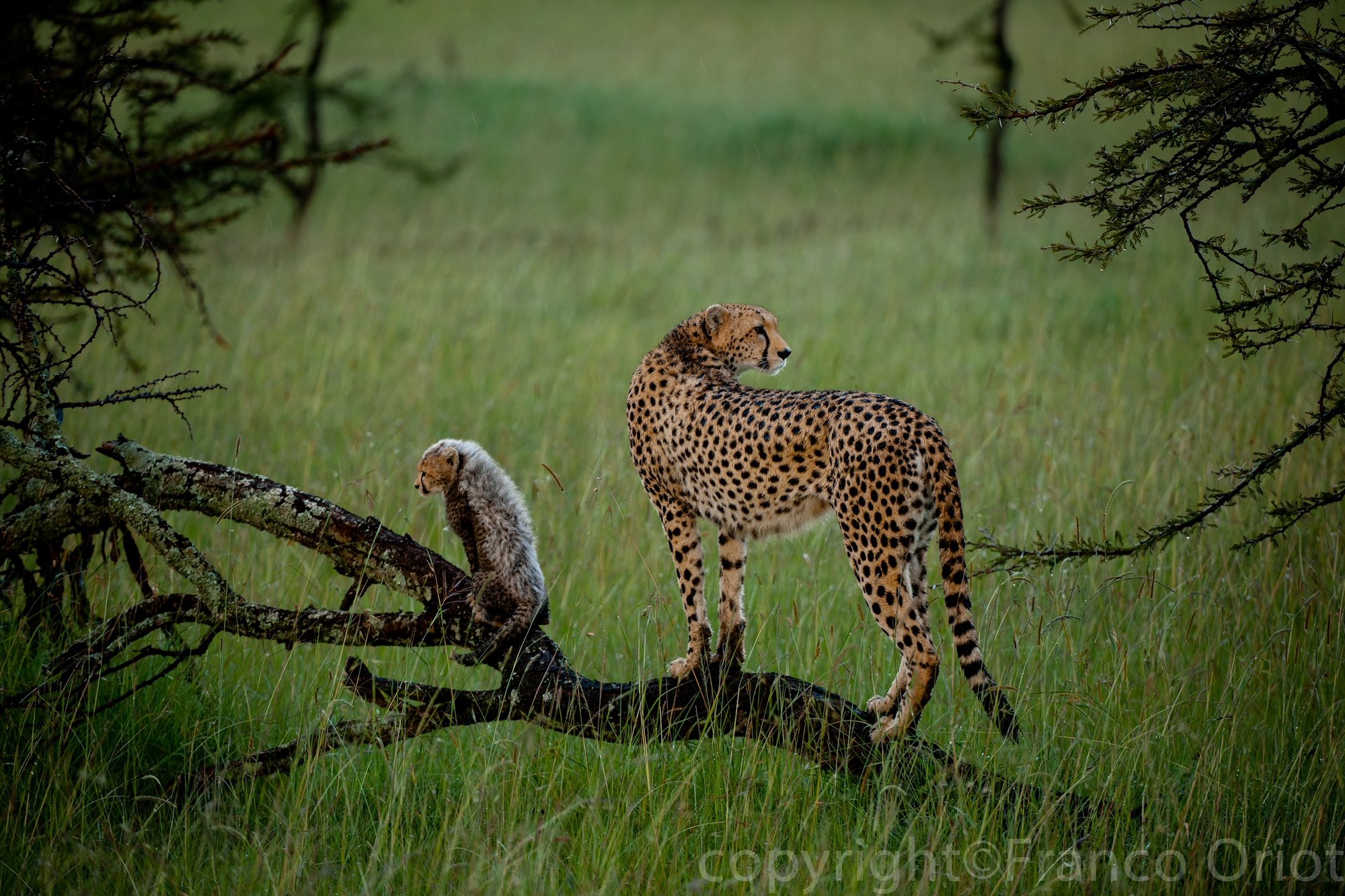Cheetah Conservation
Context and critical issues
Cheetahs (A cinonyx jubatus) face increasing threats, including habitat loss, conflict with ranchers and the illegal wildlife trade. Human expansion and climate change, in particular, are shrinking and fragmenting natural habitats, making the delicate ecosystems that cheetahs depend on more and more inhospitable. This makes it harder for these cats to find food, water and mates.
When cheetahs move into agricultural areas in search of food, the chances of conflict with ranchers grow. These situations often result in retaliatory killings and competition for space, further putting cheetah populations at risk. The global population has dropped from around 100,000 to just 7,000. The largest remaining group is found in Namibia, where there are around 1,500 to 2,000 individuals.
To help reduce conflict and support both cheetahs and local communities, the Cheetah Conservation Fund (CCF) works to encourage peaceful coexistence. They do this through education, community involvement and non lethal protection methods such as the use of livestock guarding dogs.
The CCF breeding centre we support is part of a project that has already placed more nearly 1,000 livestock guarding dogs. This has led to an average reduction of 85 to 90% in attacks on livestock by cheetahs and other predators.


THE PROJECT
The project, and the partnership in which we are active participants, includes the free supply of Almo Nature dry food once a year for three years (renewable). This donation meets the annual needs of the 20 Anatolian shepherd dogs at the CCF Centre, which play a vital role in reducing conflict between humans and cheetahs. By helping to prevent attacks on livestock, these dogs are essential in reducing the killing of cheetahs by farmers.

Partners and stakeholders
The Cheetah Conservation Fund (CCF) is the world leader in cheetah research and conservation, committed to protecting cheetahs in the wild. CCF leads the way with innovative conservation programmes and strategic partnerships that safeguard ecosystems and support rural communities. Since 1990, the organisation has restored thousands of acres of habitat and developed practical solutions to reduce conflict between humans and wildlife.
One of CCF’s key initiatives is the Livestock Guardian Dog programme. Since 1994, over 1,000 Anatolian Shepherds and other Kangal dogs have been bred and placed with farmers to protect livestock from predators. This approach has proven effective in reducing the killing of cheetahs and other large carnivores.
The CCF Research and Education Centre is located on a private nature reserve of 100,000 hectares. It includes a model farm, a veterinary clinic, an education museum, a genetics laboratory (the only one of its kind in Africa), a bushblok production facility, and other conservation-focused activities.
In 2017, CCF established a field base in Somaliland to care for cheetah cubs rescued from the illegal pet trade. The organisation is also active across the Horn of Africa, working to disrupt and prevent illegal wildlife trafficking.
 Founder and Executive Director of the Cheetah Conservation Fund (CCF), Dr Laurie Marker, has dedicated her career to the conservation of cheetahs in Namibia and beyond. Under her leadership, CCF has pioneered innovative conservation strategies, including the restoration of degraded habitats, educational programmes for farmers and ranchers, and initiatives to combat the illegal wildlife trade. Her work has transformed the field of cheetah conservation, promoting sustainable solutions that protect both ecosystems and local communities.
Founder and Executive Director of the Cheetah Conservation Fund (CCF), Dr Laurie Marker, has dedicated her career to the conservation of cheetahs in Namibia and beyond. Under her leadership, CCF has pioneered innovative conservation strategies, including the restoration of degraded habitats, educational programmes for farmers and ranchers, and initiatives to combat the illegal wildlife trade. Her work has transformed the field of cheetah conservation, promoting sustainable solutions that protect both ecosystems and local communities.
In 2023, Dr Marker played a key role in the reintroduction of cheetahs to India, where they had been extinct for over 70 years. Building on her experience in Namibia, now seen as a global model, she continues to lead the development of research and community-based conservation programmes internationally.
Dr Marker holds a Doctor of Philosophy in Zoology from the University of Oxford in the UK and is an A.D. White Professor Emerita at Cornell University in New York. She has authored more than 170 scientific papers and four books on cheetahs.
Her numerous conservation honours include the President's Award for Conservation (2020), the Lowell Thomas Award (2010) from The Explorers Club, the Tyler Prize for Environmental Achievement (2010), the E.O. Wilson Biodiversity Technology Pioneer Award (2015), and Time magazine’s Hero for the Planet recognition.



Project data
 |
DURATION 2025/2027 (renewable) |
 |
OUR INVESTMENT Over 7,200 meals/year in Almo Nature kibble |




